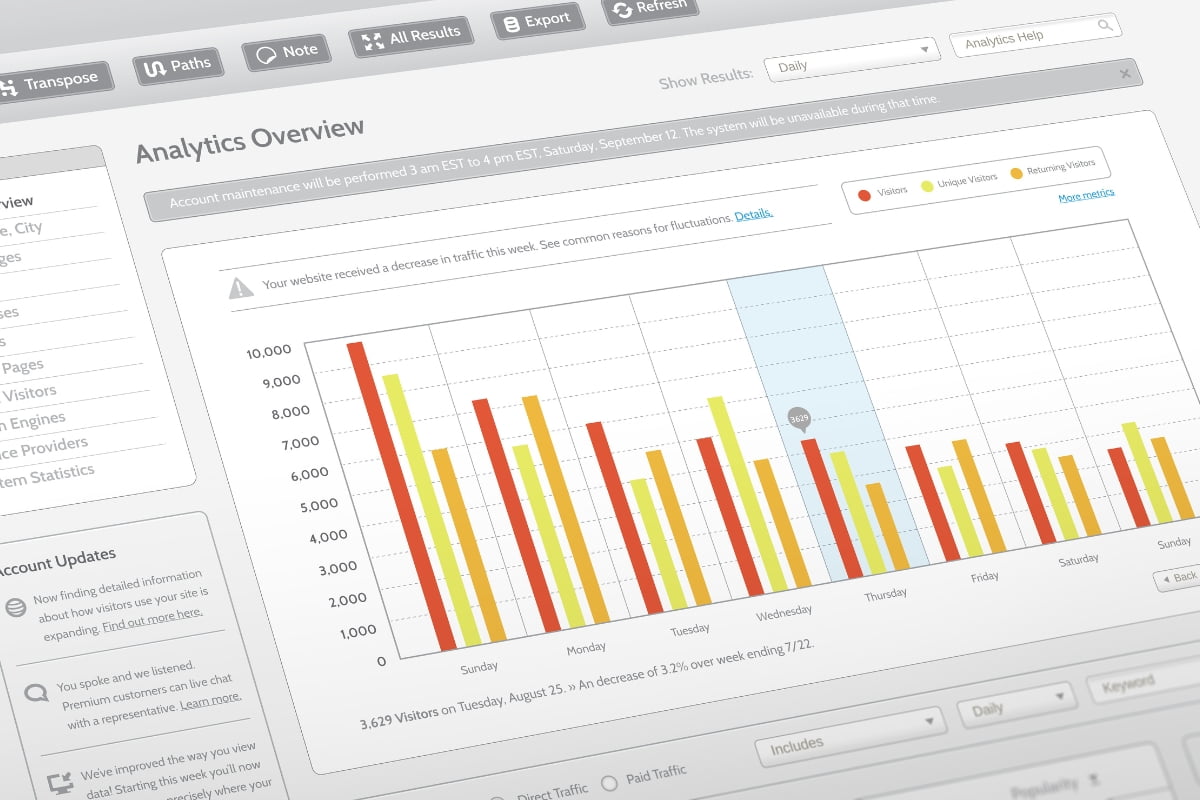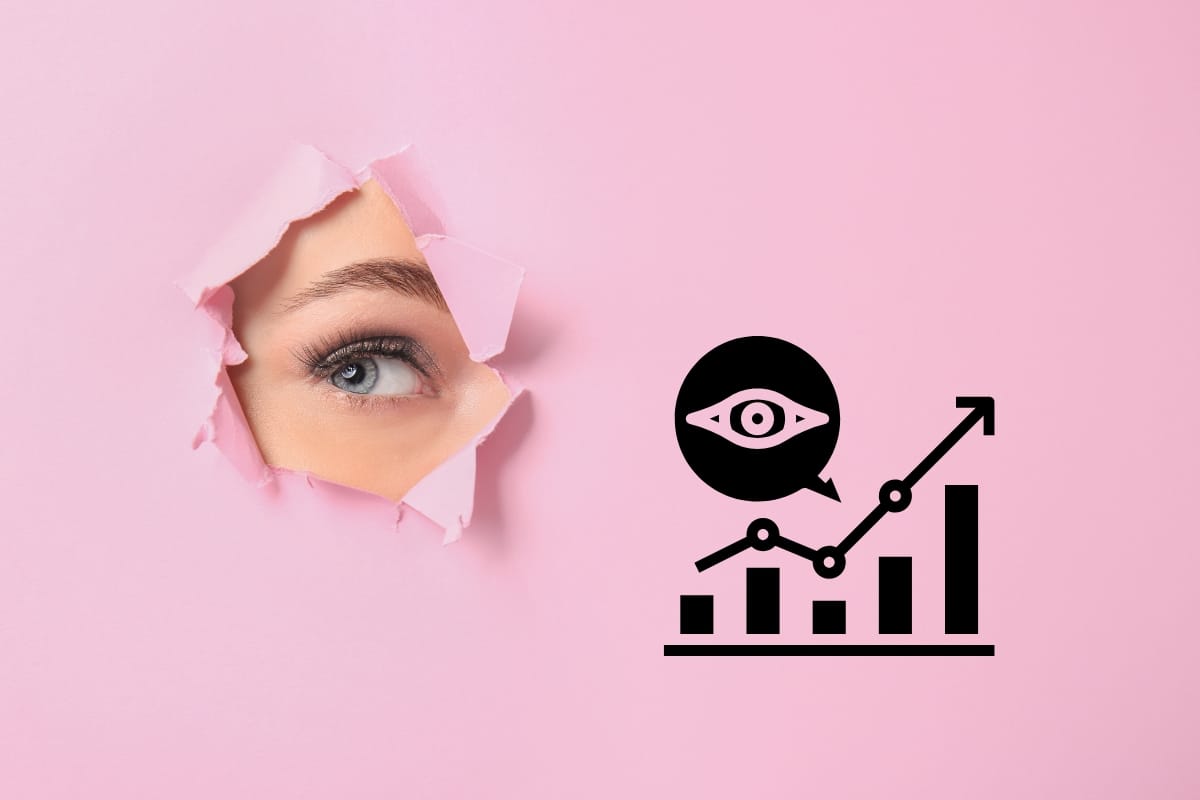Search engine optimization (SEO) has become an essential aspect of online marketing and digital success. In today’s competitive digital landscape, having a strong online presence is crucial for businesses and individuals alike. And what better way to enhance your online visibility than by mastering the art of search engine optimization techniques?
Whether you’re a seasoned marketer or just starting your journey, this blog post will equip you with the necessary tools and insights to optimize your website effectively and dominate the search engine rankings. So, get ready to take your online presence to the next level as we unravel the mysteries behind search engine optimization techniques.
Stay Ahead of the Game: Implement These Search Engine Optimization Techniques Today!
The Importance of Search Engine Optimization (SEO)

Search engine optimization (SEO) is an integral part of any successful online marketing campaign. This process works by optimizing your website and as well as its content to improve its visibility and ranking in search engine results pages (SERPs). The importance of SEO cannot be overstated in today’s digital age.
With millions of websites vying for attention on the internet, it is crucial to implement SEO techniques to stand out from the competition. By optimizing your website, you increase your chances of being found by potential customers when they search for relevant keywords or phrases on search engines like Google, Bing, or Yahoo.
One of the primary benefits of SEO is the organic traffic it drives to your website. Organic traffic refers to the visitors who find your site through unpaid search engine results. When your website ranks higher in SERPs, it attracts more organic traffic, resulting in increased visibility, brand exposure, and potential conversions.
SEO also helps in building trust and credibility with your target audience. When your website appears at the top of the search results, it gives the impression that you are a reputable and trustworthy source of information or products. Users are more likely to click on websites that rank higher, as they perceive them as more relevant and reliable.
Furthermore, SEO is cost-effective compared to other digital marketing strategies. While paid advertising can provide instant results, it requires a continuous investment. On the other hand, SEO techniques, once implemented effectively, can provide long-term benefits without ongoing expenses. It is an investment that keeps on giving, as the efforts put into optimizing your website continue to yield results over time.
Understanding Search Engine Algorithms

Search engine algorithms are the backbone of every search engine, determining the ranking and relevance of search results. Understanding how these algorithms work is crucial for mastering search engine optimization techniques and achieving online success.
Search engine algorithms are complex mathematical formulas designed to analyze and evaluate various factors when determining the order of search results. These factors include keyword relevance, website quality, user experience, and more. By understanding how these algorithms function, website owners and SEO professionals can optimize their content to improve their visibility and increase organic traffic.
Keyword relevance is one of the key factors that search engine algorithms consider. When a user enters a search query, the algorithm scans millions of web pages and ranks them based on their keyword relevancy. By optimizing your website’s content with relevant keywords, you can improve your chances of ranking higher in search results.
Website quality is another important factor that search engine algorithms take into account. Websites that provide valuable and reliable information tend to rank higher in search results. Factors such as page load speed, mobile-friendliness, and secure HTTPS connections are also considered when evaluating website quality. Optimizing your website’s technical aspects and ensuring a seamless user experience can help improve your search engine rankings.
In addition to keyword relevance and website quality, search engine algorithms also consider user experience. Algorithms analyze metrics such as click-through rates, bounce rates, and time spent on a page to determine the relevance and usefulness of a website. Websites that offer engaging and informative content are more likely to rank higher in search results.
To master search engine optimization techniques, it is important to stay updated with the latest algorithm changes. Search engine algorithms are constantly evolving to provide users with the most relevant and high-quality results. Keeping up-to-date with algorithm updates and adapting your SEO strategies accordingly can help you stay ahead of the competition.
Keyword Research: The Foundation of SEO

Keyword research is an essential aspect of search engine optimization (SEO) that serves as the foundation for successful online marketing strategies. By understanding the importance of keyword research, businesses and website owners can effectively target their audience, improve their website’s visibility, and drive organic traffic to their webpages.
When it comes to mastering search engine optimization techniques for success, keyword research plays a vital role in determining which keywords and phrases are most relevant and valuable for a particular website or blog post. By conducting thorough keyword research, you can identify the terms and phrases that your target audience is using to search for products, services, or information related to your industry.
By incorporating these relevant keywords into your website’s content, meta tags, headers, and URLs, you increase your chances of ranking higher in search engine results pages (SERPs). This, in turn, enhances your website’s visibility and attracts potential visitors who are actively seeking what you have to offer.
Effective keyword research involves several steps. First, it is crucial to brainstorm a list of potential keywords and phrases that are relevant to your website’s content and industry. This can be done by considering the products or services you offer, the problems you solve, or the topics you specialize in.
Once you have a list of potential keywords, it is important to evaluate their competitiveness and search volume. Tools such as Google Keyword Planner, SEMrush, or Moz Keyword Explorer can provide valuable insights into the search volume and competitiveness of specific keywords. By analyzing this data, you can prioritize keywords that have a higher search volume and lower competition, maximizing your chances of ranking well.
Additionally, it is essential to consider the intent behind each keyword. Understanding the search intent will help you craft relevant and valuable content that satisfies the needs of your target audience. For example, if someone searches for “best SEO techniques,” they are likely looking for a list of effective strategies, whereas someone searching for “SEO services pricing” is likely interested in finding pricing information. This same principle applies to more advanced strategies like programmatic SEO, where understanding the intent behind the keywords used in your campaigns is crucial for driving successful results.
Furthermore, keyword research is an ongoing process. It is important to regularly monitor and update your keyword strategy to stay ahead of the competition and adapt to changes in search trends. By continuously refining your keyword list and incorporating new keywords into your content, you can maintain your website’s relevance and visibility in search engine results.
On-Page Optimization Techniques for Higher Rankings

When it comes to improving your website’s search engine rankings, on-page optimization techniques are essential. These techniques focus on optimizing various elements of your web pages to make them more search engine-friendly. By implementing these techniques, you can increase your chances of ranking higher in search engine results pages (SERPs).
- Keyword Research and Optimization: A crucial aspect of on-page optimization is keyword research. By conducting thorough keyword research, you can identify the most relevant and high-performing keywords for your website. Once you have identified these keywords, strategically place them throughout your content, including in the title tag, meta description, headings, and body text. However, it’s vital to maintain a balance and avoid keyword stuffing, as this can negatively impact your rankings.
- High-Quality and Engaging Content: Creating high-quality and engaging content is paramount for on-page optimization. Search engines value websites that offer valuable and informative content to users. Ensure that your content is well-written, relevant to your target audience, and provides value. Incorporate your focus keyword and section keywords naturally throughout your content to optimize it for search engines.
- Title Tags and Meta Descriptions: Optimizing your title tags and meta descriptions is crucial for better search engine rankings. These elements provide a concise summary of your web page’s content to search engine users. Include your focus keyword in the title tag and meta description to increase its relevance. Additionally, write compelling and descriptive titles and meta descriptions that entice users to click on your link in the search results.
- Optimized Headings and Subheadings: Properly structured headings and subheadings can significantly improve your on-page optimization. Use relevant headings (H1, H2, H3, etc.) to break up your content and make it more readable. Incorporate your focus keyword and section keywords in the headings to signal their importance to search engines.
- URL Structure and Internal Linking: Optimize your website’s URL structure to improve its visibility in search results. Use descriptive and concise URLs that include your focus keyword. Additionally, implement internal linking by linking relevant pages within your website. This not only helps search engines understand your website’s structure but also encourages users to explore more of your content.
- Image Optimization: Images play a crucial role in enhancing user experience on your website. Optimize your images by compressing them to reduce file size without compromising quality. Use descriptive file names and alt tags that include your focus keyword to help search engines understand the context of the image.
- Mobile-Friendly Design: In today’s mobile-dominated world, having a mobile-friendly website is essential for higher rankings. Ensure that your website is responsive and adapts well to different screen sizes. This not only improves user experience but also satisfies search engine requirements for mobile-friendly websites.
Off-Page Optimization Strategies to Boost Your SEO Efforts

Off-page optimization plays a crucial role in improving your website’s search engine rankings and increasing its visibility. By implementing effective off-page SEO strategies, you can enhance your website’s authority, credibility, and relevance. Here are some powerful off-page optimization strategies that can propel your SEO efforts to new heights:
- Build High-Quality Backlinks: Backlinks are still one of the most influential factors in search engine algorithms. Focus on obtaining backlinks from reputable and authoritative websites relevant to your industry. Guest blogging, influencer outreach, and content promotion are effective ways to acquire quality backlinks.
- Social Media Engagement: Engaging with your target audience on social media platforms is essential for off-page optimization. Create compelling and shareable content, actively participate in discussions, and encourage social sharing. This will not only drive traffic to your website but also enhance your brand’s reputation.
- Online Reputation Management: Maintaining a positive online reputation is crucial for establishing trust and credibility. Monitor and respond to customer reviews, address complaints promptly, and showcase testimonials. A positive online reputation can significantly impact your website’s search engine rankings.
- Local SEO Optimization: If you have a local business, optimizing your website for local search results is crucial. Claim and optimize your Google My Business listing, ensure that your contact information is updated across all online directories, and encourage customers to leave reviews. This will improve your local search visibility and attract potential customers in your area.
- Influencer Marketing: Collaborating with influencers within your niche can go a long way to expand your brand’s reach and attracting relevant traffic. Find influencers whose brands align with your values and engage in partnerships to promote your products or services. This can lead to increased brand awareness, website traffic, and ultimately, improved search engine rankings.
- Brand Mentions: Building brand mentions across the web can enhance your website’s authority and relevance. Monitor mentions of your brand, products, or services and reach out to webmasters to request a backlink. Additionally, ensure your website’s branding elements are consistent and easily recognizable across different channels.
- Content Marketing: Creating high-quality and informative content is essential for off-page optimization. Develop a content marketing strategy that focuses on creating shareable and link-worthy content. This can include blog posts, infographics, videos, and other engaging formats that resonate with your target audience. In conclusion, off-page optimization strategies are vital for boosting your SEO efforts.
Creating High-Quality Content that Appeals to Both Users and Search Engines

Creating high-quality content that appeals to both users and search engines is essential for the success of your website or blog. When it comes to search engine optimization techniques, it is crucial to strike a balance between pleasing your audience and optimizing your content for search engines.
To begin with, one of the most important aspects of creating high-quality content is understanding your target audience. Conduct thorough research to identify their needs, preferences, and pain points. This information will help you tailor your content to their specific interests and provide valuable information that they are searching for.
In addition to catering to your audience, it is equally important to optimize your content for search engines. This involves incorporating relevant keywords throughout your content, particularly in the title, headings, and meta description. However, it is crucial to avoid keyword stuffing, as search engines now prioritize high-quality and relevant content over keyword density.
Another important aspect of creating content that appeals to both users and search engines is to write engaging and informative articles. Your content should be well-written, easy to read, and provide value to your readers. This will not only keep your audience engaged but also encourage them to share your content, which can lead to increased visibility and traffic.
Furthermore, incorporating multimedia elements such as images, videos, and infographics can make your content more visually appealing and engaging. These elements not only break up the text but also provide additional information and enhance the overall user experience.
Additionally, optimizing your website or blog for mobile devices is crucial in today’s digital era. With the majority of internet users accessing content through their smartphones or tablets, having a mobile-friendly website is essential. This includes ensuring that your content is responsive, loads quickly, and is easy to navigate on mobile devices.
Lastly, regularly updating and refreshing your content is important for both users and search engines. Fresh and up-to-date content not only keeps your audience engaged but also signals to search engines that your website is active and relevant. Consider updating your existing articles, adding new information, or repurposing old content to keep it fresh and appealing.
Monitoring and Analyzing Your SEO Performance

Monitoring and analyzing your SEO performance is crucial for the success of your search engine optimization techniques. By regularly assessing and evaluating your SEO efforts, you can identify strengths, weaknesses, and areas for improvement. Let’s explore some key aspects of monitoring and analyzing your SEO performance.
One important metric to track is your website’s organic search traffic. This refers to the number of visitors who find your site through search engine results. By monitoring this metric, you can determine the effectiveness of your SEO strategies in driving organic traffic to your website. Tools like Google Analytics provide valuable insights into your organic search traffic, allowing you to analyze trends and identify any fluctuations.
Another essential aspect of monitoring your SEO performance is tracking keyword rankings. By monitoring your ranking positions for target keywords, you can assess the impact of your SEO efforts on search engine results pages (SERPs). This data helps you understand which keywords are driving traffic to your site and which ones may require further optimization.
In addition to keyword rankings, it’s crucial to keep an eye on your website’s backlink profile. Backlinks are links from other websites that point to your site, indicating its authority and relevance. Monitoring your backlinks helps you identify potential opportunities for link building and can uncover any harmful or low-quality links that may be affecting your SEO performance.
Analyzing user engagement metrics is another essential aspect of monitoring your SEO performance. Metrics like bounce rate, time on page, and pages per session provide insights into how users interact with your website. By analyzing these metrics, you can identify areas where users may be exiting your site prematurely or areas that engage visitors for a longer duration.
Furthermore, monitoring your website’s loading speed is crucial for SEO success. Slow-loading websites can lead to higher bounce rates and lower search engine rankings. Tools like Google PageSpeed Insights can help you analyze your website’s speed and provide recommendations for improvement.
Regularly monitoring and analyzing your SEO performance allows you to make data-driven decisions and optimize your strategies accordingly. By identifying areas of improvement and capitalizing on your strengths, you can enhance your website’s visibility, organic traffic, and ultimately, your online success.
Conclusion: Mastering SEO for Unparalleled Online Success
To achieve unparalleled success online, it is crucial to master the art of search engine optimization (SEO). By understanding and implementing effective SEO techniques, you can drive targeted traffic to your website, increase visibility, and ultimately boost your online presence.
Remember, SEO is an ongoing process, so stay updated with the latest trends and algorithm changes to stay ahead of the competition and achieve lasting online success.
Ensure your success with your SEO efforts with Newman Web Solutions behind your brand! We have extensive experience working with SEO, and our comprehensive Local SEO services ensure that your brand maintains a strong online presence with your audience and SERPs.
Kick off your project and optimize your SEO today by reaching out through our website form, or giving us a call at (404) 301-9189. Choose Newman Web Solutions and take your business to the next level!





